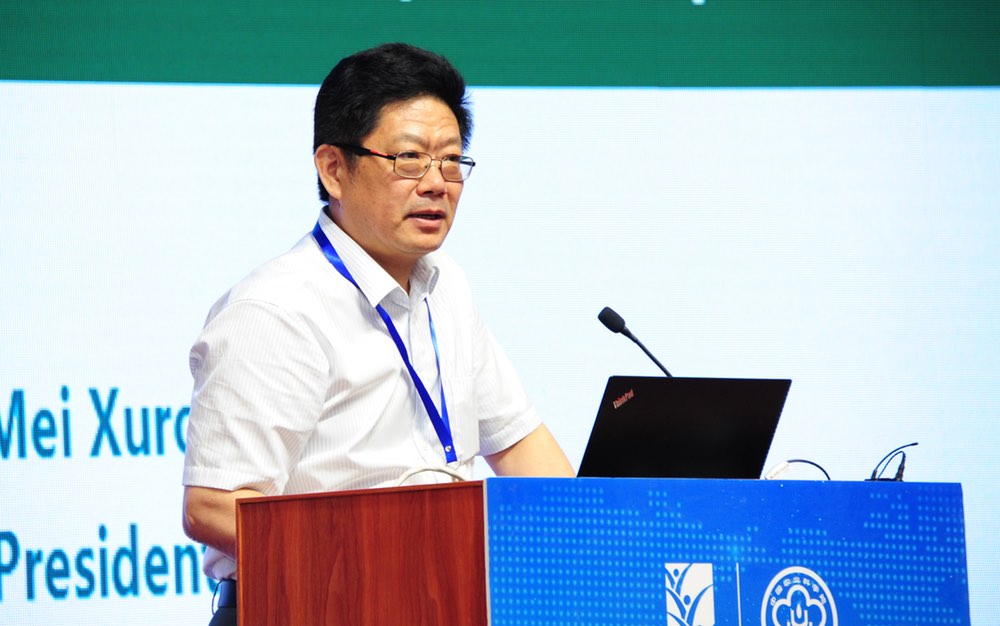Countries must work with and learn from each other to advance progress in food security and agricultural development, and China can be a great source of mutual learning, said experts at the June 26 Beijing launch of the 2018 Global Food Policy Report (GFPR) and the China Agricultural Sector Development Report (CASDR), co-hosted by IFPRI and the Chinese Academy of Agricultural Sciences (CAAS).
Commenting on the synergies between the two reports, Kevin Chen, head of IFPRI’s East and Central Asia Office, said: “The 2018 GFPR brings a global perspective of opportunities and challenges for food policy and developments in 2017-2018, with a focus on the impact of rising anti-globalization sentiments on food security and nutrition. The first-ever CASDR released by CAAS examines China’s path in agricultural sector development in the past 40 years, and provides a look forward amid trade protectionism.”
Inequality and hunger were on the rise globally throughout 2017 despite continued economic recovery. Anti-globalism and changing political landscapes may create further uncertainties for food security and nutrition. “Policies that encourage global or regional integration through open trade, knowledge sharing, and international investment are critical to reductions in hunger, poverty, and malnutrition,” said IFPRI Director General Shenggen Fan. “In addition, reforms on domestic farm policy and global governance are also important.”
Some of China’s policies have set good examples in promoting regional integration, Fan noted. The Belt and Road Initiative, launched by President Xi Jinping in 2013, is an ambitious effort to improve economic connectivity between Eurasian countries. It links China to Central and South Asia and Europe through the Silk Road Economic Belt, and to Southeast Asia, the Gulf countries, North Africa, and Europe through the New Maritime Silk Road. The initiative creates opportunities for countries to build new infrastructure, while enabling China to strengthen its economic links and science and technology cooperation with them.
The CASDR assesses the impact of recent national policies and reforms on China’s agricultural sector in the context of U.S.-China trade frictions, the Belt and Road Initiative, the food price support policy, and the environmental tax reform.
“China’s agricultural sector has made tremendous progress after 40 years of economic reform, for which agricultural science and technology has been a key driver,” said CAAS Vice President Xurong Mei. “Global integration also has made great contribution to the progress.” Current anti-globalization sentiment in the U.S. and elsewhere will affect the agricultural trade landscape as well as food prices. “Multiple policies and actions should be taken simultaneously to cope with rising trade protectionism,” Mei suggested.
Then how to make sure the policies are effective? Justin Yifu Lin, director of the Center for New Structural Economics at Peking University, shared his insights. “Effective policies come from innovative thinking, and this is what the 2018 GFPR offers,” he said. “The success stories in achieving food production growth and eliminating hunger the report highlighted provide lessons that many countries can learn from.” He added that, China’s experience, as detailed in the CASDR, also provokes valuable thinking for other countries.
Emerging as a global economic powerhouse, China is expected to play a more important role in global governance. “We hope that China will become an indispensable partner for other developing countries and regions in terms of knowledge sharing, innovation, global policy and advocacy,” said Yinuo Li, director of the Bill & Melinda Gates Foundation China Country Office.
Looking ahead, deeper regional and global integration should continue as the way forward to meet the U.N. Sustainable Development Goals, and building climate resilience will remain at the top of the global agenda, participants agreed. China seems to be on the right track. The nation’s rural revitalization strategy, according to Fan, presents key opportunities and an integrated approach for resolving pressing environmental issues and spurring economic growth for both rural and urban areas. “Rural revitalization will be the theme of next year’s GFPR, as we explore how to leverage opportunities presented by rural areas to reshape food systems and build resilience for food and nutrition security. I believe China’s rural revitalization strategy will provide valuable experience, and we should continue fostering cooperation and mutual learning.” Fan concluded.
Lin Gao is Senior Administrative Coordinator in IFPRI’s Director General’s Office.







